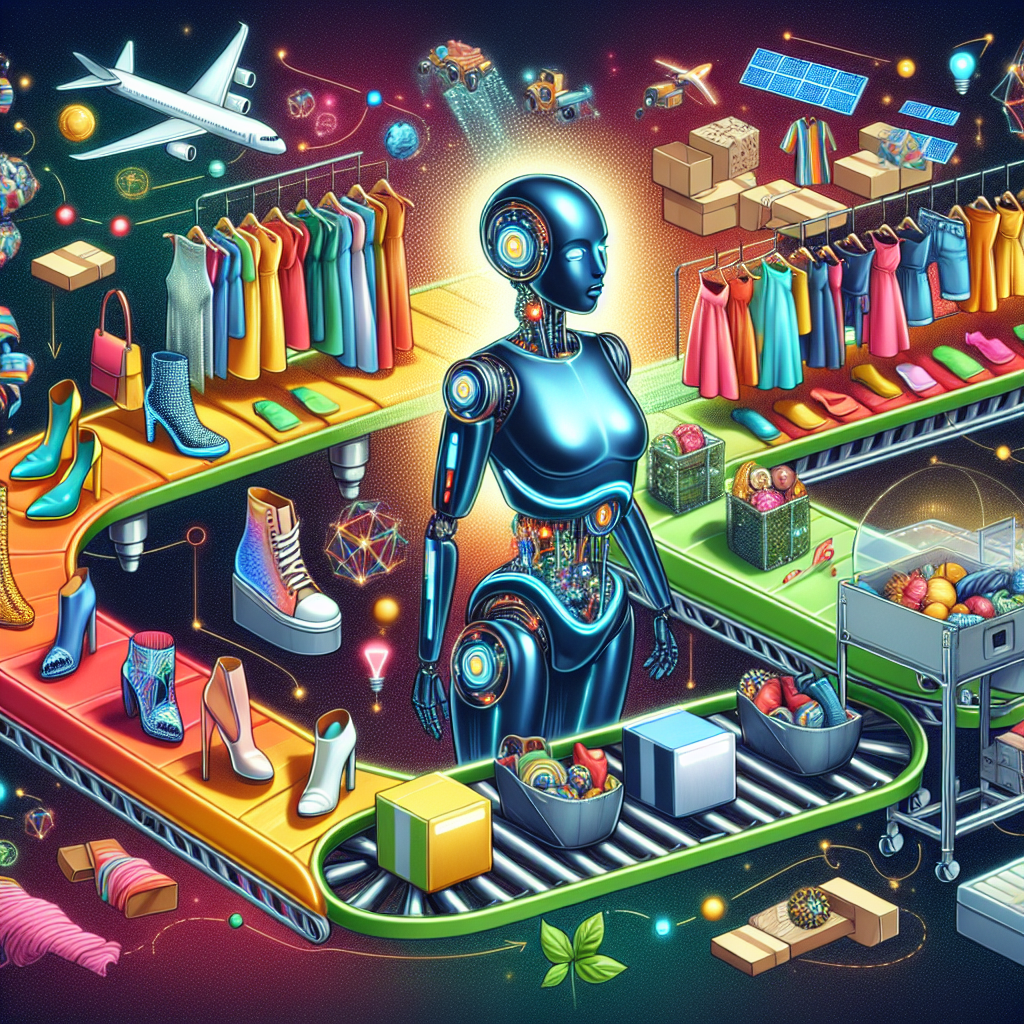The Impact of AI on Fashion Supply Chain Efficiency and Sustainable Practices
The fashion industry is constantly evolving, with trends changing rapidly and consumer demands shifting at an ever-increasing pace. This has put immense pressure on fashion companies to adapt their supply chain processes to meet these demands while also maintaining sustainability practices. Artificial Intelligence (AI) has emerged as a powerful tool that can revolutionize the way fashion supply chains operate, improving efficiency and promoting sustainable practices.
AI in fashion supply chains can be used in various ways, from streamlining manufacturing processes to predicting consumer trends. One of the key benefits of AI in supply chains is its ability to analyze massive amounts of data quickly and accurately, enabling companies to make more informed decisions in real-time. This can help reduce lead times, minimize waste, and improve the overall efficiency of the supply chain.
Efficiency in the fashion supply chain is essential for meeting consumer demands and staying competitive in the market. AI can help companies optimize their production processes by predicting demand, managing inventory levels, and automating tasks such as order processing and distribution. This can help reduce costs, improve speed to market, and enhance overall customer satisfaction.
In addition to improving efficiency, AI can also play a crucial role in promoting sustainable practices in the fashion industry. By analyzing data on sourcing, production, and distribution, AI can help companies identify areas where they can reduce waste, minimize environmental impact, and improve working conditions in their supply chain. This can help fashion companies meet the growing demand for sustainable products and practices from consumers and regulators.
One of the key ways AI is being used to promote sustainability in fashion supply chains is through the use of predictive analytics. By analyzing historical data on consumer preferences, weather patterns, and other factors, AI can help companies forecast demand more accurately and plan production accordingly. This can help reduce overproduction, minimize excess inventory, and decrease the amount of waste generated by the fashion industry.
Another way AI is promoting sustainability in fashion supply chains is through the use of blockchain technology. Blockchain can help companies track the origins of raw materials, monitor production processes, and verify the authenticity of products, ensuring transparency and accountability throughout the supply chain. This can help companies reduce the risk of unethical practices such as child labor, deforestation, and pollution, and improve the overall sustainability of their operations.
Overall, the impact of AI on fashion supply chain efficiency and sustainable practices is significant. By leveraging the power of AI, fashion companies can optimize their operations, reduce costs, and minimize their environmental footprint, all while meeting the demands of a rapidly changing market. As AI continues to evolve and become more sophisticated, its potential to revolutionize the fashion industry is only set to grow.
FAQs
Q: How can AI improve efficiency in fashion supply chains?
A: AI can improve efficiency in fashion supply chains by analyzing data quickly and accurately, predicting demand, managing inventory levels, and automating tasks such as order processing and distribution.
Q: How can AI promote sustainability in fashion supply chains?
A: AI can promote sustainability in fashion supply chains by analyzing data on sourcing, production, and distribution to identify areas where waste can be reduced, environmental impact minimized, and working conditions improved.
Q: What are some examples of how AI is being used in the fashion industry?
A: AI is being used in the fashion industry to predict consumer trends, optimize production processes, automate tasks, and promote sustainability through the use of predictive analytics and blockchain technology.
Q: How is AI helping fashion companies meet the demands of a rapidly changing market?
A: AI is helping fashion companies meet the demands of a rapidly changing market by enabling them to make more informed decisions in real-time, reduce lead times, and improve speed to market while also promoting sustainability practices.

